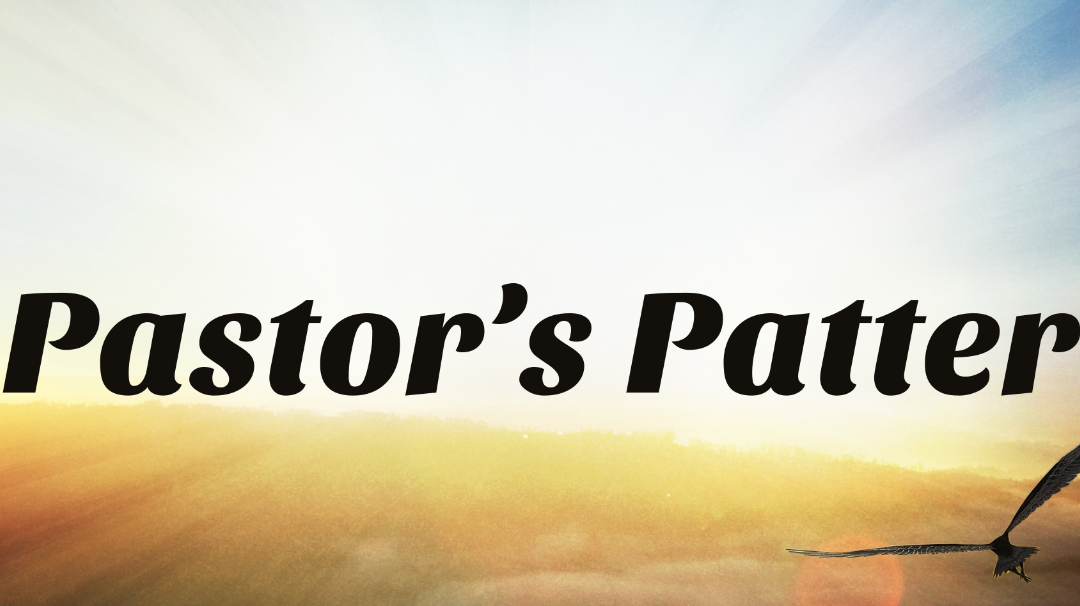Pastor’s Patter
February, 2021
I read an advice column which appears in the Lincoln newspaper. Seeing how stupid
some people can be makes me feel better about myself. I realize that I have plenty of company
in my lapses of judgment and in my deficiencies regarding problem solving.
For example, a woman wrote to “Amy,” probably a pen name, about her domineering
sister-in-law. Here’s the backdrop to the drama:
Four siblings had inherited from their parents an out-of-the-way cabin, sharing both the
benefits and responsibilities of that property. The complainant mentioned that the offending,
and offensive, sister-in-law makes rules arbitrarily (no pets); organizes supplies (she stores
paper products in the porous garage — Ew! Soggy toilet paper!); and rearranges furniture
without consulting the other individuals involved in the partnership.
The woman who brought the problem to Amy referred to her brother’s wife as
“controlling.” No surprise there! Amy must have agreed with that assessment because the title
of that day’s installment was “Sister-in-law acts like she owns the place,” an apt representation
of what was going on.
In reply, Amy observed with razor-sharp insight, “My theory about people who are
overly controlling is that they are basically trying to tamp down their own anxiety by trafficking
in perfection.” Got that?
That letter called to my mind a very similar episode in a very similar venue.
Several years ago we were on vacation at a lake home in northwest Wisconsin belonging
to a segment of my wife’s family, and it was decided that we should all play volleyball in the
crystal clear, knee-deep water near the wooden boat dock. “All” included several of my wife’s
family and children. This spontaneous decision necessitated setting up the volleyball net. My
brother-in-law immediately took charge of the project, telling one person to place one post
here and ordering a second individual to position the other post over there, and stipulating that
the net itself should be attached in a precise and particular manner. After he issued a few more
directives, I, with mock exasperation, commented, “Gee, Gary, you act like you own the place!”
The neighbor lady, who overheard my sarcasm from her dock, guffawed. I don’t recall if
Gary appreciated my astute observation or not, but at least one person did; two, if you count
me.
The primary difference between these two stories is that Gary did indeed own the lake
home; whereas, the subject of the letter to Amy did not enjoy full ownership of that particular
property.
When God created humans, He gave them “dominion,” a term which I understand to
denote authority, but not unbridled authority. Dominion is authority with accountability. God
gave humans dominion over creation, that is, we are caretakers; and we are, or will be,
accountable to God for the way in which we treat the land, including the flora and fauna which
occupy the land. We are stewards, not owners.
Although farmers may have a deed to their property, in our faith tradition, they are not
owners, but stewards. Although parents, on a good day, may refer to their offspring as “our
children,” those kids, including the not yet born, are only on loan to mom and dad for a few
years. Parents are not owners, but stewards. Nature, with all its majestic and transcendent
beauty, is entrusted to us; and we are called to pass it on to the next generation in the best
condition possible, so our descendants may also enjoy it and be inspired by it. We are not
owners, but stewards.
As is the case with many issues, the sticking point is humility, or the lack of it. We, as
Christians, are expected to acknowledge and to accept our assigned position in the universe.
God is the Creator; I am one of His creations. God is master; I am His servant. God is Sovereign; I
am His subject. God speaks; I hear and obey. God is God, and I am not. It is good that our faith
reminds us from time to time that we don’t own the place.
Whether it be a cottage in the North woods or a planet named “Earth,” nothing really
belongs to our race. Everything is just on loan to us. We are not owners, but stewards. We are
accountable for the way we take care of that which has been entrusted to us. Someday, we will
answer to the One who does own the place.
Ken Tubbesing
Pastor

